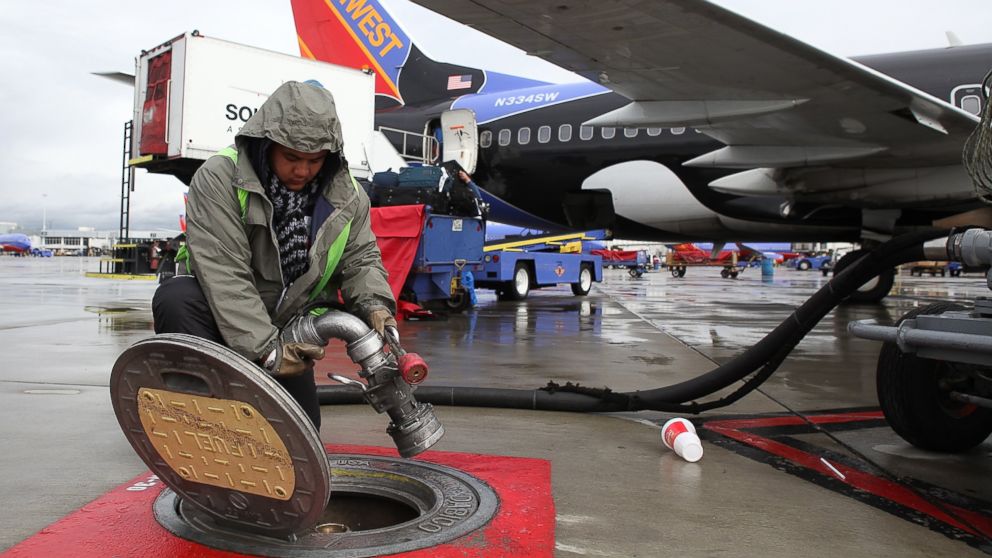Some Airlines Drop Fuel Surcharges. Yours Isn't One of Them
Oil has plummeted to less than $48 per barrel, but the insanity continues.

— -- When I began writing for ABC back in 2008, one of my first columns was about the "madness" of fuel surcharges, which were high but so was oil, hovering around $130 a barrel.
Today, oil has plummeted to less than $48, but the insanity continues. An example is the price of a ticket on a major U.S. airline's New York-London route, $1,092. It includes lots of taxes and fees imposed by both governments, but the really interesting part is the rest of the ticket.
- Base fare: $403
- Fuel surcharge: $458
Crazy, huh? A surcharge costing more than the ride. Worse, $458 is the same surcharge levied back in August when oil was nearly twice the price. So why are so many airlines still charging so much money? Because they can.
Let's get real. This isn't about fuel, it's about higher fares that airlines don't want to lower, so they slap on a convenient fuel surcharge label. Blaming the high price of oil has worked in the past, but not so much now given today's low prices. But again, airlines keep surcharges because they can.
They can because demand among U.S. travelers remains steady. Enough of us are still willing to pay relatively crazy prices, and our nicely chugging-along economy allows us to do that.
But wait. Some airlines aren't on board with the money grab. The catch is, they're based outside the U.S. The latest is Virgin Australia, which is dropping fuel surcharges on flights to the U.S. for a savings of $64 to $80 per round-trip flight. So far, rival Qantas has not joined in, but Japan Air Lines and Qatar Airways have.
Most impressive is Cebu Pacific, which flies to Asia, Australia and the Mideast. The Philippines-based carrier is dumping all fuel surcharges across the board.
I think changes will come to U.S. airlines, particularly on overseas flights; keep your eyes out for some fuel surcharge discounting on routes to Europe in the spring. That's assuming oil prices stay low but, again, don't expect too much. Sure, there have been pockets of pressure from passengers and even politicians like Sen. Charles Schumer, who called for an investigation into this "curious and confounding" matter, but that was last month and the fuel surcharges are still high.
Want to see them drop significantly or disappear altogether? Demand would have to drop but that would take something along the lines of a serious setback to the economy or renewed fears of terrorism. A better way would be a big injection of competition into the scene; unfortunately, that's not in the cards thanks to mergers and virtual mergers. The latter is a kind of economic lockstep that allows carriers like American, British Airways and Iberia to co-ordinate flight schedules and pricing thanks to anti-trust immunity. It may look and sound like collusion but it's all perfectly legal!
There is one other way surcharges will drop, but this method depends on you and me and anyone else who likes to travel: fly closer to home. If enough travelers skip the eight-hour flights, prices will drop. On the other hand, freedom to travel is one of life's great gifts and we shouldn't have to miss out. But we may get tired of paying airline-imposed surcharges simply because they can charge for them.
The opinions expressed by Rick Seaney in this column are his alone and do not reflect the views of ABC News.




